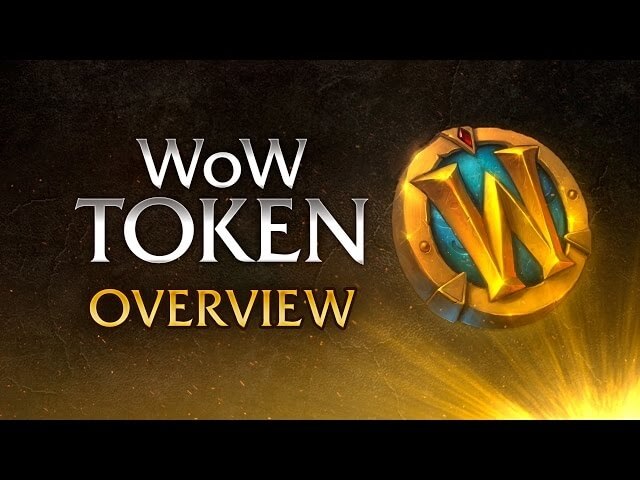Rather than risk the ire of those who might think the developer is overcharging for game time or currency, the system lets players put a value on their own time. A college student who might have a surplus of time and a shortage of money can use the gold they’ve accrued through in-game efforts instead of cash to keep playing. On the other hand, it gives someone with more disposable income the option to drop in a little extra cash to avoid having to worry about, for example, having enough gold in the bank to cover armor repairs. Considering how many multiplayer games can be played for free, Blizzard is increasingly facing a problem of players who don’t want to have to give their credit card number to login. A chance to earn their monthly subscription might ease that sting.
With a subscriber base that rivals the population of Norway, it’s not surprising that over the past decade World Of Warcraft has developed a sophisticated economy that relies on macroeconomic principals. Modern economies are driven by supply and demand, and the economy of Azeroth is no different. The materials needed to craft the most useful and highest-level items in World Of Warcraft sell for good coin in auction houses, though the priciest products are often effectively luxury items—things like mounts and pets that serve little purpose beyond showing off.
For most of the game’s history, players who wanted to make gold might take up mining or herbalism, dedicate hours to learning to produce valuable specialized products like enchantments or armor, or just run through dungeons over and over again killing everything that might drop a few coins. Now, a player who doesn’t have the time for that can shell out $15, the cost of a one-month subscription, to buy a Token and expect to be paid about 29,000 gold. For reference, the Mosshide Riverwallow, an armored hippopotamus that is the most expensive mount sold by vendors in last year’s Warlords Of Draenor expansion, costs 50,000 gold.
But while having plenty of gold will make getting good gear easier, no amount of gold will ever buy you the best equipment. Prime armor and weapons can only be acquired by defeating the top-level bosses with the help of other players. Unlike many so-called “freemium” games, World Of Warcraft will never let you pay to win—at least not legally. Azeroth also has a highly lucrative black market. Since the game’s launch, numerous companies have popped up to sell players gold and other services, such as leveling up characters and running through specific quests and battlegrounds to earn the resources required for certain items. This black market is a result of our real world’s globalized economy. People in China can be paid enough by international players to make a living performing these services. But like any black market, what might seem like a victimless crime is built upon a spectrum of deplorable behavior, ranging from stealing accounts to allegedly using political prisoners to do the work.
In that regard, the WOW Tokens are a bit like legalized marijuana. Blizzard long wished that people would just play the game as intended and spend their time doing the things they enjoy, which, for some players, is typically tedious but lucrative tasks like fishing. But where there is demand, there will be supply, and Blizzard has decided to be that supplier when it comes to easy gold. This lets the developer set the terms, make money from the deal, and repurpose some of the attention it previously paid to crushing gold-selling sites and penalizing players that used them. Just as legalizing a single drug doesn’t stop cartels, these services will still exist, but one of their most common products has been rendered all but obsolete since players can now acquire it without running the risk of having Blizzard shut down their accounts or having no recourse in the event they don’t get the gold they were promised by a criminal enterprise.
World Of Warcraft’s economy is always most volatile when a new expansion is released. Auction houses become glutted with materials used for crafting in the previous expansion since they’ll become all but useless once players start focusing on the new recipes. While prices for old content might plunge, the overall effect is inflationary, as new quests reward plenty of gold and players test how much they can get for the hot new items. With the next expansion, Legion, already on the horizon, it remains to be seen how the Tokens will effect things. New expansions always bring a surge in players, which could potentially drive up the price of Tokens as they cash in gold to reactivate their subscriptions.
With the addition of WOW Tokens, the game’s economy has become more complex and tied to that of the real world than ever before. Consider what might happen if unemployment numbers rise dramatically. Players that lose their jobs might have less disposable income but more time to devote to becoming gold suppliers and purchasing game time through hard work. Those who are still employed might feel increased pressures and find their free time further restricted, encouraging them to place Tokens on the Auction House for quick gold. Players have been treating Tokens like the commodity they are. Multiple Twitter accounts and websites monitor the fluctuations in Token prices, helping to inform players when a good time to buy or sell them might be. Considering that goblins’ other favorite saying is “I got the best deals, anywhere” they’d assuredly be impressed.
Previously in the Commerce series

